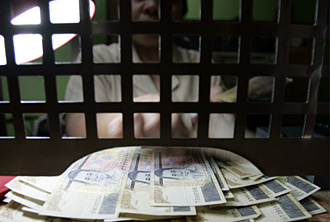
|
 |
 |
 Business News | May 2008 Business News | May 2008  
Mexico Growth May Be Hurt by Remittances, Cox Says
 Alex Emery - Bloomberg Alex Emery - Bloomberg
go to original


| | Money transferred from abroad is a vital source of capital for poor households and a potential vehicle for community development. (Reuters) | | |
Mexican and Central American economic growth will be hurt by a decline in remittances from workers living abroad because of a slowdown in the U.S., said Pamela Cox, the World Bank's vice president for Latin America.

South America has used a boom in commodity prices to build fiscal surpluses and is in better shape to withstand a possible recession in the U.S., Cox told reporters today in Lima. Latin American growth will slow this year to 4.5 percent, she said, a reduction from the bank's earlier forecast of 5 percent.

"Mexico, Central America and the Caribbean have strong trade ties to the U.S. and depend on remittances, which we see going down," Cox said. "We see a bigger impact of the crisis in these countries, which are also hard hit by high food and energy prices."

Mexicans working abroad reduced money transfers to their families at home by 2.9 percent in the first quarter compared with last year as a U.S. housing slump squeezed construction employment, the biggest employer of Mexico's migrants.

Droughts and an increasing agricultural focus on biofuels instead of staple food crops mean food prices will probably remain high until 2015, Cox said. The World Bank is "concerned" by global inflation, she said.

"The era of cheap food is over, for at least the next seven or eight years," Cox said.

Latin America needs to invest more in transportation infrastructure to bring down food prices, Cox said. The World Bank plans to lend Latin American countries $4.6 billion this year, she said.

To contact the reporter for this story: Alex Emery in Lima at aemery1(at)bloomberg.net | 
 | |
 |



